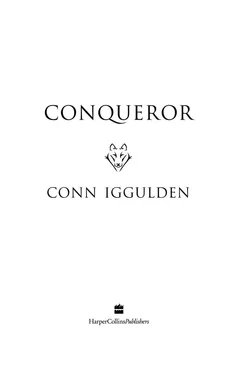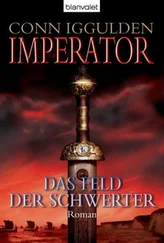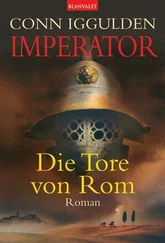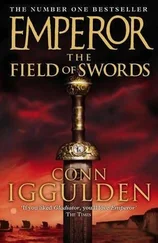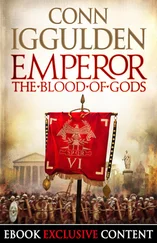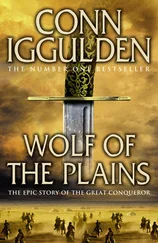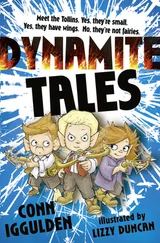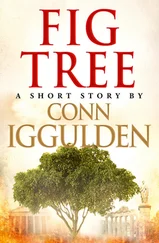Kublai rode in pouring rain, his horse labouring and snorting as it plunged through thick mud. Whenever they stopped, he would change to a spare horse. The sturdy animals were the secret of his army’s power and he never envied the much larger Arab stallions, or the Russian plough horses with shoulders higher than his head. The Mongol ponies could ride to the horizon, then do it again the next day. He was not so sure about himself. His numb hands shook in the cold and he coughed constantly, sipping airag from a skin to ease his throat and let a trickle of warmth spread down his chest. He did not need to be sober to ride and it was a small comfort.
Twelve tumans rode with him, including the eight who had fought their way to within reach of Hangzhou. There was no road wide enough for such a horde and they left a trail of churned fields half a mile wide. Far ahead, his scouts rode without armour or equipment, taking over the yam stations and holding the riders there long enough for the tumans to arrive and swallow them up. He was able to judge the distance they travelled each day by the number of them he passed - the regular spacing set by the laws of Genghis himself. Passing two meant he had ridden fifty miles, but on a good day, when the ground was firm and the sun shone, they could pass three.
This was not that day. The front ranks did better, but by the time the second or third tuman rode over the same ground, it had become deep, churned clods that wearied the mounts and cut the distance they could travel.
Kublai raised his hand to signal one of his personal bondsmen. The drummer boys on camels could not have kept up the pace of the previous fifteen days of hard riding. No camel alive could run fifty or seventy miles a day over rough terrain. Kublai grinned at the sight of the man. His bondsman was so spattered with mud that his face, legs and chest were almost completely black, his eyes showing as red-rimmed holes. The bondsman saw the gesture and raised a horn to his lips, sounding a low note that was immediately echoed by others down the lines.
It took time to stop so many, or even for them to hear the order. Kublai waited patiently as the lines ahead and behind began to slow to a walk, and finally he was able to dismount, grunting in discomfort as tired muscles creaked. He had been riding at speed for a morning and if his men felt half as tired as he did, it was time to rest and eat.
Three hundred thousand horses needed to graze for hours each day to keep up the pace. Kublai always chose stopping points by rivers and good grass, but they had been hard to find as they pushed into the west. Xanadu was over a thousand miles behind him, his half-built city showing clearly what it would become in a few more years. The wide streets had been laid in fine, smooth stone, perfect and ready to be worn down by his people. Great sections were finished and he had brought life to silent streets with his people. The excitement on their faces had pleased him as they claimed empty houses and moved in together, chattering at every new wonder. He smiled as his mind embellished the memories, making parks and avenues where there were still pegs and saplings. Yet it was real and it would grow. If he left nothing else behind, he would have made a city from nothing.
Since then, the terrain had changed many times, from wet river plains to rough hills with nothing but scrub thorn bushes. They had passed a hundred small towns, with the inhabitants hiding themselves away. That was one thing about riding with twelve tumans - Kublai had nothing to fear from bandits or scavengers. They rode through an empty landscape as every potential enemy vanished at the sight of them.
Each group of ten warriors had two or three whose job it was to lead thirty horses to water and grass. They carried grain, but problems of weight meant they could take only enough for an emergency supply. Kublai handed over his reins to another and stretched his back with a groan. In the downpour, he hadn’t bothered looking for woodland to provide fuel. It would be a cold meal of stale bread and meat scraps for most of the men. Xanadu had provided enough salted lamb and goat to last a month, an amount that had left the entire population on half-rations behind them until the herds replenished themselves. They were not yet at the point of drinking mare’s blood from the living animals, but it was not far away.
Kublai sighed, taking pleasure in watching the routines around him, enjoying the lessening of eye strain as he focused on something close instead of miles ahead. He missed his wife, though he had learned not to grow too attached to a baby until he was sure it would survive. His son Zhenjin rode with the bondsmen, white with fatigue by the end of a day, but doggedly determined not to let his father down. He was on the edge of true manhood, but thin and wiry like his father. There were worse ways to grow into a man - and worse companions than the tumans around him.
As Kublai stretched, Uriang-Khadai walked over to him, shaking clods of mud from his feet as he went. They were all covered in the muck that spattered up from hooves and Kublai had to grin at the sight of the dignified orlok made to look as if he’d rolled down a wet hill. The force of the rain increased suddenly, washing away the worst of it as they stood and stared at each other. It made a dull thunder as it hammered down and somewhere close lightning cracked across the sky, a dim flash behind the heavy clouds. Kublai began to laugh.
‘I thought we were going to cross deserts, orlok. A man could drown standing up here.’
‘I prefer it to heat, my lord, but I can’t get the maps out in this. We’ve taken two yam stations today. I suggest we let the horses and men rest until tomorrow. I doubt it will last much longer.’
‘How far to Samarkand now?’ Kublai asked. He saw the older man raise his eyes to heaven and recalled he’d asked the same question many times.
‘Some seven hundred miles, my lord. About fifty less than this morning.’
Kublai ignored the orlok’s sour tone and worked it out. Twelve more days, maybe ten if he forced the men to the edge of ragged exhaustion and changed mounts more often. He had been careful with his resources to that point, but perhaps it was time to push for their highest possible speed.
The Chagatai khanate was well established and there would be yam lines running right through it in all directions. Though he took the riders from each one, he still worried that someone would get ahead of him. It would take a superb rider to stay in front of his tumans, but a man without armour on a fresh horse only had to reach one station ahead and then change horses at every point. It could be done and he dreaded the news that someone had already gone racing through.
Uriang-Khadai had waited patiently while the khan thought, knowing Kublai well.
‘What can you tell me about the land to come?’ Kublai asked.
The orlok shrugged, glancing south. If it had not been for the rain, he would have seen the white-capped mountain peaks that led down into India. They were skirting the edges of the range, taking a path almost straight south-west that would lead them into the heart of the Chagatai khanate and its most prosperous cities.
‘The maps show a pass through the final range of mountains. I do not know how high we must go to get over it. Beyond the peaks, the land is flat enough to make up whatever time we lose there.’
Kublai closed his eyes for a moment. His men could endure the cold far better than heat and he had spare deel robes on the packhorses. The problem was always food, for so many men and animals. They were already on short rations and he did not want to arrive in the Chagatai khanate like refugees from some disaster. They had to come fresh enough to fight and win quickly.
‘Fifteen days then. In fifteen, I want to see Samarkand’s walls before me. We’ll stop for the night here, where the grass is good, to let the horses fill their bellies. Tell the men to go out and seek firewood; we have almost nothing left.’
Читать дальше
Конец ознакомительного отрывка
Купить книгу
